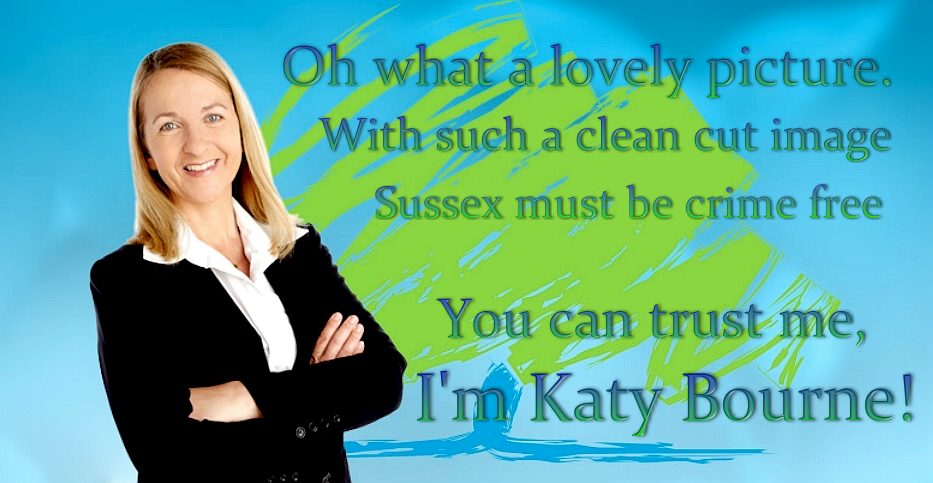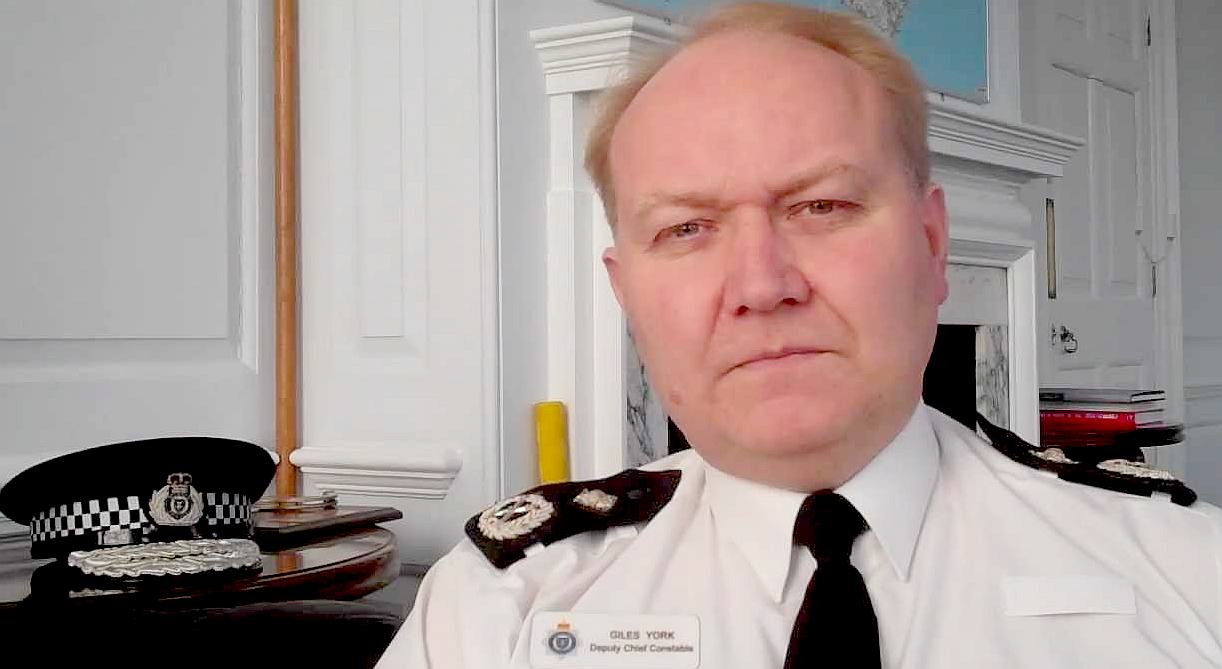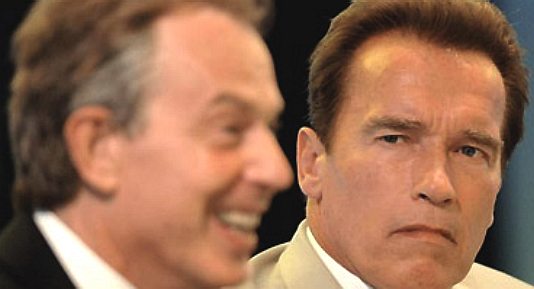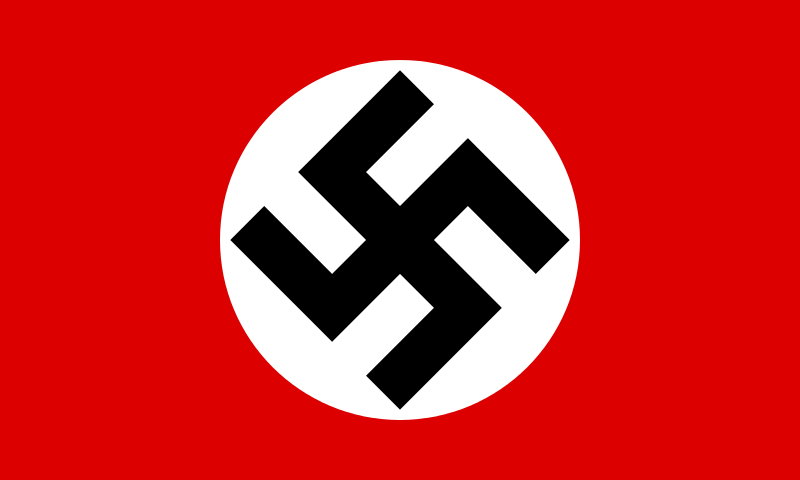|

SUSPENSION
- Deputy Chief Constable of Sussex Mark Jordan was suspended following a report on the shooting of
James Ashley, 39, at his home in St Leonards, Sussex.
Mr Ashley, who had a conviction for manslaughter, was in bed with his girlfriend when armed police burst into his flat. The raid was part of an investigation into an attempted murder and alleged drugs trafficking.
Five officers were suspended pending the outcome of an investigation by the Police Complaints Authority.
Sussex Chief Constable Paul Whitehouse said: "We deeply regret the shooting of James Ashley.
"This is a difficult time for Sussex Police and for all the individuals concerned.
"We hope of course that all the outstanding matters will be resolved as quickly as possible."
It was alleged during the inquest into Mr Ashley's death that police officers had hampered inquiries because they were "unable to remember" key facts from the case.
Senior police officers were also accused of "misrepresenting" intelligence used to justify the raid.
Mr Whitehouse was called for questioning by the inquiry into Mr Ashley's death last year.
With a second report is due from Hampshire Police next month on the shooting, the chief constable
Mark
Jordan was the deputy chief constable of Sussex
Police during the bungled raid on James
Ashley's flat in Hastings when Chris
Sherwood shot and killed the naked and unarmed man. Chris Sherwood and
others were charged with murder but the Judge in the case stopped the
trial. No British policeman accused of shooting a suspect has ever been
prosecuted, that is how corrupt the justice system is in Britain.
The
chief constable of Sussex police in 2018 was Giles
York. Mr York had been asked to look at organised crime in the
planning department at Wealden
District Council. He'd also been asked to look at gun
crime and the issue of a receipt for guns to a known criminal.
Finally, Katy
Bourne the them crime commissioner and former dance instructor, was
asked to look at the inaction of Mr York to investigate these serious
allegations, but her response was to ignore such complaints and seek
injunctions against anyone who pressed such matters, including Matt
Taylor and John Hoath. That is how
pathetic the attempts to stifle political opposition were in 2018.
THE
GUARDIAN 2001
The shooting of
Jimmy Ashley provoked an extraordinary three-way punch up in which the neighbouring police forces of Sussex,
Kent and
Hampshire accused each other variously of incompetence, unprofessional behaviour, conspiracy and crime.
Kent were called in to investigate the shooting, believed they were being obstructed and accused Sussex of conspiring to pervert the course of justice. Sussex complained that Kent were bullying, dishonest, incompetent and simply not used to dealing with honest police officers. Hampshire were then called in to sort out the squabble and ended up being drawn in to the fight, rejecting Kent’s fear of conspiracy but pouring scalding criticism on the three most senior officers in Sussex, which in turn provoked Sussex into accusing Hampshire of producing conclusions without evidence and simply not understanding how a decent force is run.
In the middle of all this was the chief constable of Sussex, Paul
Whitehouse, probably the most liberal chief officer in the country, a man who tries to stay in touch with the job by going out on night patrol with junior officers, who deliberately made a point by advertising for new recruits in Gay News and turned down a bonus of £12,000 because he disapproved of the concept of performance-related pay. He is also a Quaker, committed to non violence, and the last chief constable who might have been expected to end up with one of his officers killing an unarmed man.
But it is Whitehouse who is accused of throwing the first punch by issuing a press release four hours after Jimmy Ashley’s death in which he declared: “I am satisfied from all the information available to me that the operation was professionally and competently executed and that all of the officers involved behaved properly.” Kent found that infuriating: they had not even arrived in
Sussex to begin their inquiry, and yet here was Whitehouse announcing a conclusion. And they were particularly worried that it would alienate the family of the dead man. When Whitehouse then gave press interviews in which he said incorrectly that Ashley had been wanted for attempted murder, they feared Sussex were deliberately blackening the dead man’s name.
By the time that Kent discovered that there had also been a series of meetings between senior officers and some of those involved in the shooting and that nobody had mentioned any of these meetings, they believed they were dealing with a fully-fledged conspiracy to obstruct their inquiry. They stopped briefing Paul Whitehouse on their progress, moved their base back to Kent for fear of break-in or surveillance, and told the Police Complaints Authority, who were supervising their work, that they feared senior Sussex officers were being untruthful. The PCA called in Sir John Hoddinott, then the chief constable of Hampshire and a very forceful man.
Sir John found “suggestive evidence of collusion between some or all of the chief officers” in Sussex to conceal what they knew at the time of the press release, noted that “an arguable case of attempting to pervert the course of justice might be made out” but concluded finally that it made better sense to see this as evidence of criminal misfeasance. He lacerated the senior officers of Sussex with the kind of language that is rarely heard between public figures. (Indeed, it was not intended to be heard, but was contained in a secret report which the Guardian has seen.)
Sir John found that the press release was “effectively disinformation” because it claimed that all was well even though Whitehouse and his team already knew that the dead man had been naked and unarmed and, furthermore, that the officer who had shot him, PC
Chris Sherwood, had had his firearms permit temporarily withdrawn a couple of years earlier after a girlfriend complained about his violent behaviour. Sir John concluded: “The chief constable is a public officer and has a duty to tell the truth. He wilfully failed to tell the truth as he knew it, he did so without reasonable excuse or justification and what was published and said was misleading and therefore likely to injure the public interest.”
Paul Whitehouse remained adamant that there was nothing wrong with the press release, telling friends that “John Hoddinott doesn’t understand that a police officer can shoot somebody who is naked and unarmed without that being improper.” Senior Sussex officers accused both the Kent and the Hants inquiries of being “dishonourable” in trying to make something of the fact that PC Sherwood had once lost his firearms permit: the reality was that the permit had been returned to him on the authority of a senior officer, Richard Childs, who had gone on to become chief constable of Lincolnshire. But Sir John was not finished.
He said some of Mr Whitehouse’s statements to Kent were false, and that his defence of his actions to the Sussex Police Authority was “unsustainable in any rational sense” and “plainly perverse”. Mr Whitehouse had told the authority that “nothing in what was reported to me suggested in the slightest that there had been improper behaviour”. Sir John said: “No objective person – the man on the top deck of the Clapham omnibus or any other – could possibly come to that conclusion, presented with the same information as the chief constable had. Such a comment could only mislead.” Sir John went on to specify that he was questioning not only Mr Whitehouse’s judgement but also his integrity. He said there was evidence that Mr Whitehouse was guilty of criminal misfeasance, falsehood and discreditable conduct.
Whitehouse denied all this with passion and found some support from the Crown Prosecution
Service, who declined to charge him, and from his police authority, who issued him with ‘words of advice’, the lowest form of discipline. Sir John conceded that Mr Whitehouse’s sole motive was to support his officers and not to conceal the truth about the shooting. But he was still not finished.
Examining the police authority’s handling of a complaint about the press release from the dead man’s family, Sir John declared that the behaviour of the deputy clerk to the authority, Andrew Ogden, was “rather strange and a cause for concern”. Mr Ogden had acted both as legal advisor to the chief constable and as deputy clerk to the police authority who were responsible for judging his behaviour. Mr Ogden, Sir John said, had failed to give the authority key facts about the production of the press release – “one would have thought that a deputy clerk owed a duty to the authority to have drawn these matters to their attention”. Mr Ogden replied that he was well aware of his professional obligations and saw no conflict of interest.
Sir John also roughed up one of the assistant chief constables, Nigel Yeo, against whom he said there was evidence of criminal misfeasance and falsehood over the press release; and the deputy chief constable of Sussex, Mark Jordan, against whom he said there was evidence of criminal misfeasance, neglect of duty, discreditable conduct, and aiding and abetting the chief constable’s false statements. He described some of Mr Jordan’s statements to the Kent inquiry as “frankly absurd” and “simply not credible” and suggested that Mr Jordan had abrogated his responsibilities on the day of the shooting by sitting alone for 20 minutes in his office and then going for a long walk in the garden. Sir John noted “sometimes bizarre behaviour revealing a deputy chief constable who at one moment is in tears and threatening to resign and another treating subordinates like children. It is from this that he has apparently earned the nickname, from the nursery rhyme, the Duke of York.”
Sir John’s report was sent to the Crown Prosecution Service, who decided not to prosecute any of the senior Sussex officers for criminal misfeasance. The Sussex police authority temporarily suspended Paul Whitehouse and
Nigel Yeo in February 1999 and then gave written ‘words of advice’ to both of them. Mr Jordan has been suspended since February 1999, and the police authority are due to conduct a disciplinary hearing against him soon.
THE
CODE OF CONDUCT
Not
many people get a reply to their correspondence even when reporting
serious crimes, but this force will spend £10,000 of public money attempting
to prosecute a person for goods to the value of £19.99, where that person
is a thorn in the side of their chums at Wealden District
Council.
On
the other side of the coin, this force appear hesitant to investigate complaints
involving £ hundreds of thousands of pounds in connection with land fraud and manipulation
of land values, totally ignored by the crime
commissioner, Katy Bourne.
SIMILAR
FACT EVIDENCE
There
are too many cases that demonstrate failures in investigations, for this
to be a coincidence. Certain individuals that fall foul of Wealden
District Council almost invariably end up being wrongly imprisoned or
otherwise with a criminal record, or facing some kind of charge. This is one of Weaden's favourite ploys
for disposing of cases where they have been caught red-handed tampering
with or otherwise falsifying evidence in neighbour disputes, where Wealden
DC have taken the side of the more influential citizen - instead of
investigating matters impartially and
honestly.
MISFEASANCE
& MALFEASANCE
When
an officer of the courts' omits to include evidence that he knows is
relevant to a hearing, that is termed misfeasance in public office.
Where an officer then tries to cover up his or her misfeasance (as did
Ian Kay in the Stream Farm matter), that becomes malfeasance. The
difference is that misfeasance is a civil wrong, whereas malfeasance is
a criminal offence. The leading case
precedent on malfeasance is: R. v Bowden
1995 Court of Appeal (98 1 WLR). In this case Bowden was a police
officer who saw a crime in progress and walked away from it, calling in
sick the next day to seek to cover up his wrongdoing.
If
you are the victim of a wrongful prosecution or the police are refusing
to investigate a crime you might think of taking your case to the
Independent Police Complaints Commission (IPCC), we would though advise
that in serious cases of institutionalized corruption, that you should
first lodge copy of your complaint with the Attorney General, Lord
Chancellor and the Prime Minister of the
day, David Cameron, who is responsible for
running our administration under a mandate from the current Ruler
of the United
Kingdom.

Katy
Bourne was elected Crime Commissioner, taking office with an oath to serve
the public interest. That is an oath that many are now questioning, where
she appears to be serving Sussex Police instead of policing the
organisation that has come under such flack for their blatant refusal to
investigate so many complaints of malfeasance in public
office.

ANY
MASONS ON YOUR BEAT? - What of Sussex Police. They have been asked if
a member of the public can view their Register of Interests, with an
especial leaning toward Masons. The
real question is: "Do they have such a register?" If they do,
will it be accurate - and if so will it reveal the links between
complainants where we know that others masons who are civilians have
instigated or at least pushed for the prosecution of another civilian that
they have fallen out with.
According
to the independent research into police Masonry, Martin Short, author of
the most detailed account of modern British freemasonry, 'Inside The
Brotherhood,' estimates that 20% of London officers belong to Masonic
lodges. He says there is cause for concern about this and in December, he
gave evidence to the Select Committee inquiry of a case he had researched
recently in Lancashire which, he told them, “demonstrates just how badly
the administration of justice can go wrong when police, Crown Prosecution
solicitors and private citizens are all in the same Masonic lodge.”
This story began one night in 1988 when two Leicester businessmen were
taking a late-night drink in a hotel in Blackburn. A group of burly
strangers in dinner jackets ordered them out of the bar. The Leicester men
declined to go. The strangers then announced that they were policemen and
proceeded to beat them up. They then called other police who arrested the
two Leicester men and charged them with assaulting police officers. When
the Leicester men were released on bail the next morning, they found that
the hotel manager had seized their belongings until they agreed to pay for
damage caused by the fight and that someone had let all the air out of
their car tyres and removed their hub caps.
The Blackburn police and Crown prosecutors
pursued the case to court, where the two Leicester men faced substantial
jail sentences for allegedly assaulting policemen. But the case fell
apart. The jury rejected all of the police evidence and found that the
Leicester businessmen were not guilty of any offence at all. The judge
signalled his own view by taking the unusual step of ordering that the
defendants’ costs should be paid out of the public purse. The two men
then sued for assault, wrongful arrest,
malicious prosecution, conspiracy
to injure and libel. In an out-of-court settlement, they were awarded
£170,000, most of which was paid on behalf of the policemen by the
Lancashire force.
Martin Short told the Select Committee that freemasonry was at the heart
of this case. The two Leicester men had stumbled into the tail-end of a
Masonic event, a dinner organised by the Victory lodge of Blackburn. This
lodge, said Short, is dominated by police officers: the policemen who were
involved in the original fight, the officer who subsequently investigated
the incident, a senior official in the Crown Prosecution office which
handled the case, and the manager of the hotel where the dinner took place
were all members of the Victory lodge.
IPCC
CONTACTS
Independent Police Complaints Commission
PO Box 473
Sale, M33 0BW
Switchboard:
0300 020 0096
Email: enquiries@ipcc.gsi.gov.uk
Hard of hearing: 18001 0207 166 3000

LINKS
& REFERENCE
http://news.bbc.co.uk/1/hi/uk/282279.stm
http://www.dailymail.co.uk/news/article-3272305/Senior-policeman-suspended-late-night-race-row-threatening-taxi-driver-s-licence-taken-him.html
http://news.bbc.co.uk/1/hi/uk/293039.stm
http://www.nickdavies.net/2001/05/01/chief-police-officers-in-disarray/
http://www.eastbourneherald.co.uk/news/local/queen-s-police-medal-honour-for-chief-constable-1-6504564
http://www.bbc.co.uk/news/uk-england-sussex-28091706
https://www.ipcc.gov.uk/

Vicarage Lane, Hailsham,
East Sussex, BN27 2AX T: 01323 443322
LINKS & REFERENCE
http://bentlawyersandcops.com/bent_cops_list.htm
https://www.sussex.police.uk/about-us/senior-leaders/
Shadow
Sussex Police crime commissioner blogspot UK 2016 January three new
cases to rock the Bill
http://shadowsussexpolicecrimecommissioner.blogspot.co.uk/2016/01/three-new-cases-to-rock-sussex-police.html
http://www.royalmail.com/
http://www.sussex.police.uk/
http://www.wealden.gov.uk/



Paul
Whitehouse (1993-2001) Ken
Jones (2001-2006) Joe
Edwards (2006-2007) Martin
Richards (2008-2014) Giles York (2014
>>)
|





